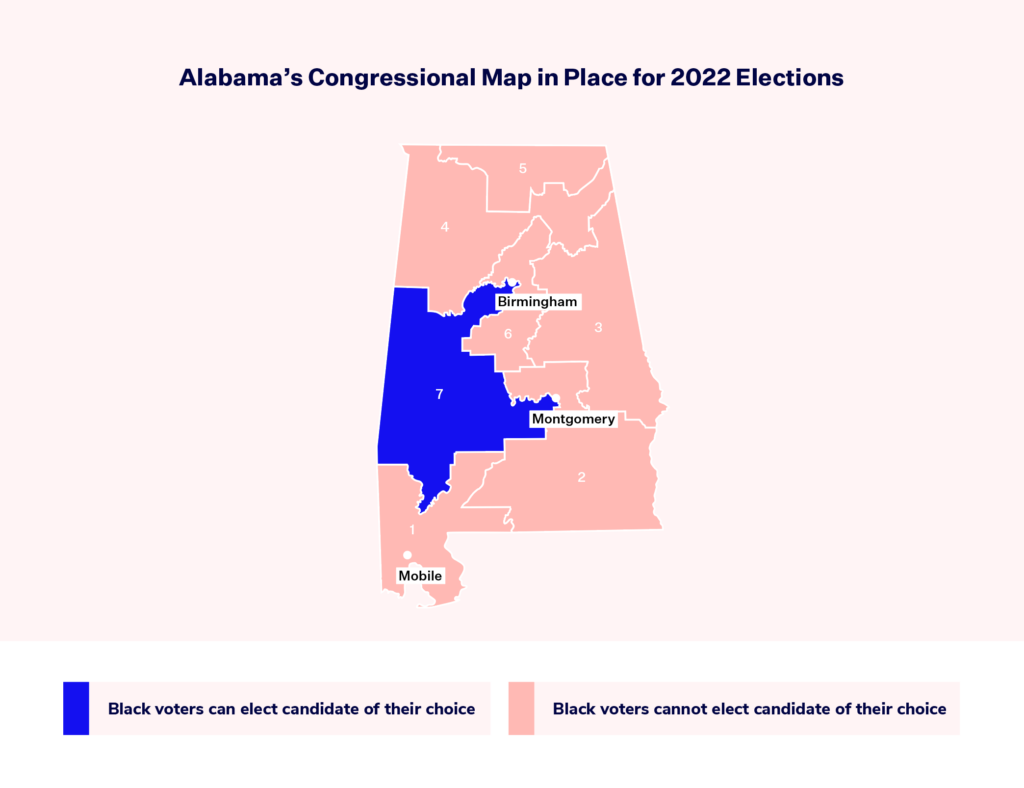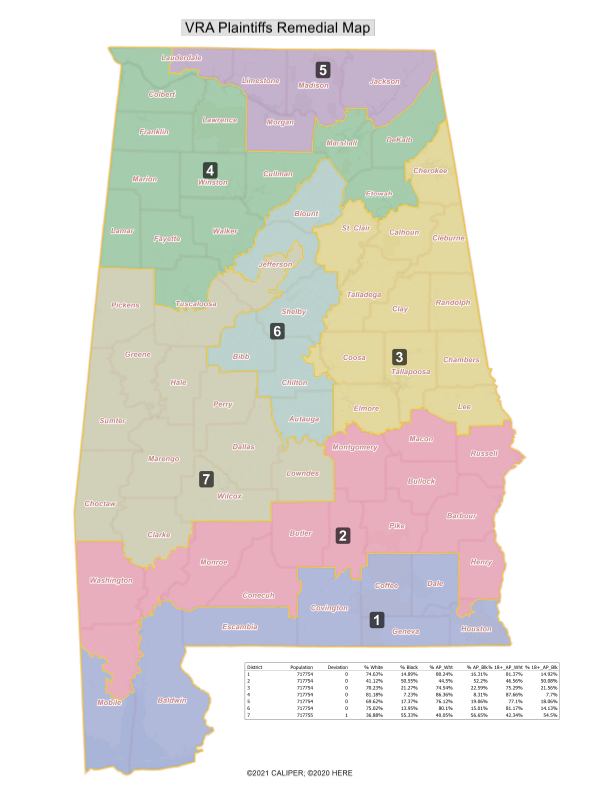After Allen v. Milligan, Plaintiffs Submit Proposed Remedial Map to Alabama Legislature
WASHINGTON, D.C. — On Tuesday, June 27, the Alabama Legislative Committee on Reapportionment met to hear public comments and discuss the next steps in redrawing Alabama’s congressional map in light of the U.S. Supreme Court’s decision in Allen v. Milligan. Previously, the state’s congressional map was struck down for likely violating Section 2 of the Voting Rights Act (VRA) and diluting the voting power of Black voters.
On June 8, the U.S. Supreme Court issued its decision in Allen v. Milligan, a landmark decision that leaves Section 2 of the VRA intact and affirms a lower court order that blocked Alabama’s congressional map for likely violating Section 2. This decision stems from a lawsuit alleging that the state’s congressional map drawn with 2020 census data — which was in place during the 2022 midterm elections — violates the VRA by having only one majority-Black district.
This is the map that the plaintiffs challenged. As depicted below, Black voters have the opportunity to elect their candidate of choice in the 7th Congressional District, but cannot elect their candidate of choice in any other districts.

Under the blocked map, Black voters compose a significant portion (25 to 30%) of the population in the 1st, 2nd and 3rd Congressional Districts. Yet, because these communities are split over these three districts, they cannot elect the candidate of their choice in any of them.
Voters, including lead plaintiff Evan Milligan, spoke of this disconnect during a hearing in January 2022: “I think there is a direct correlation between the lack of agency that black voters feel, you know, in Montgomery and in places where you see the splitting of the districts…[A second majority-Black] district would provide more buy-in for those communities and more of an incentive to make, you know, longer term commitments, and even see themselves as leaders of those communities.”
As a result of the Supreme Court’s decision in Allen, a new congressional map will be redrawn before the 2024 election that contains a second majority-Black district. Per a court order, the Legislature must enact a new congressional map by July 21.
The parties who brought the lawsuit challenging the original map submitted a remedial plan to the Legislature’s reapportionment committee entitled the “VRA Plaintiffs’ Remedial Plan.” This new plan, if adopted by the Legislature, would give Black voters the opportunity to elect their candidate of choice in two districts: the 2nd Congressional District and and 7th Congressional District.

In a press release on the submission of the remedial map, the VRA Plaintiffs stated that their remedial map “contains two districts that ‘perform’ consistently for Black voters in primary and general elections.” Importantly, the VRA Plaintiffs also state that their remedial map “remedies the cracking of the Black Belt community of interest, identified by the courts.” Yesterday, at the legislative committee hearing, plaintiffs from Allen expressed their support for the VRA Plaintiffs’ remedial map.
Now it will be up to the Legislature — which will convene for a special session on July 17 — to pass a new map that complies with the VRA.